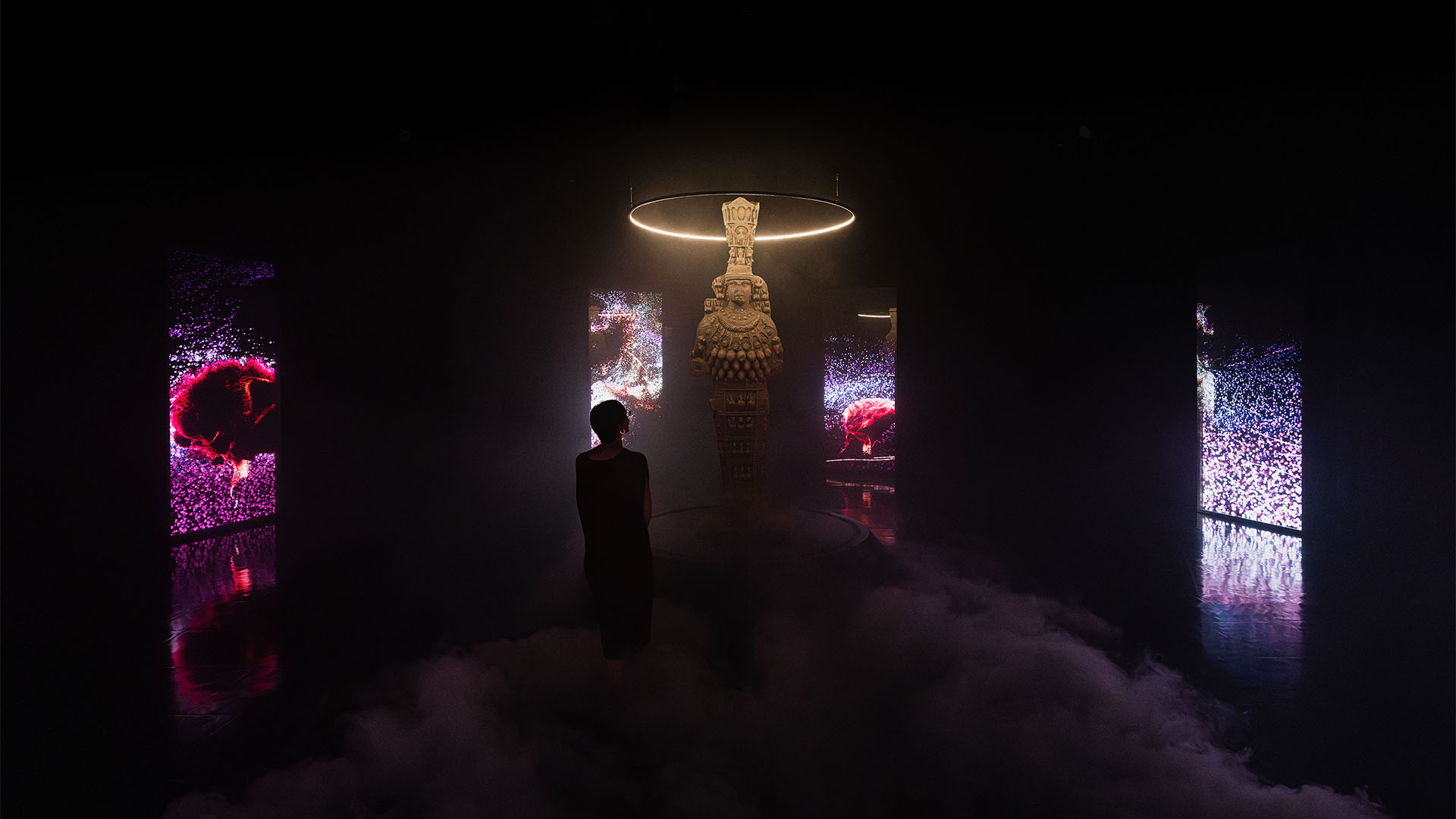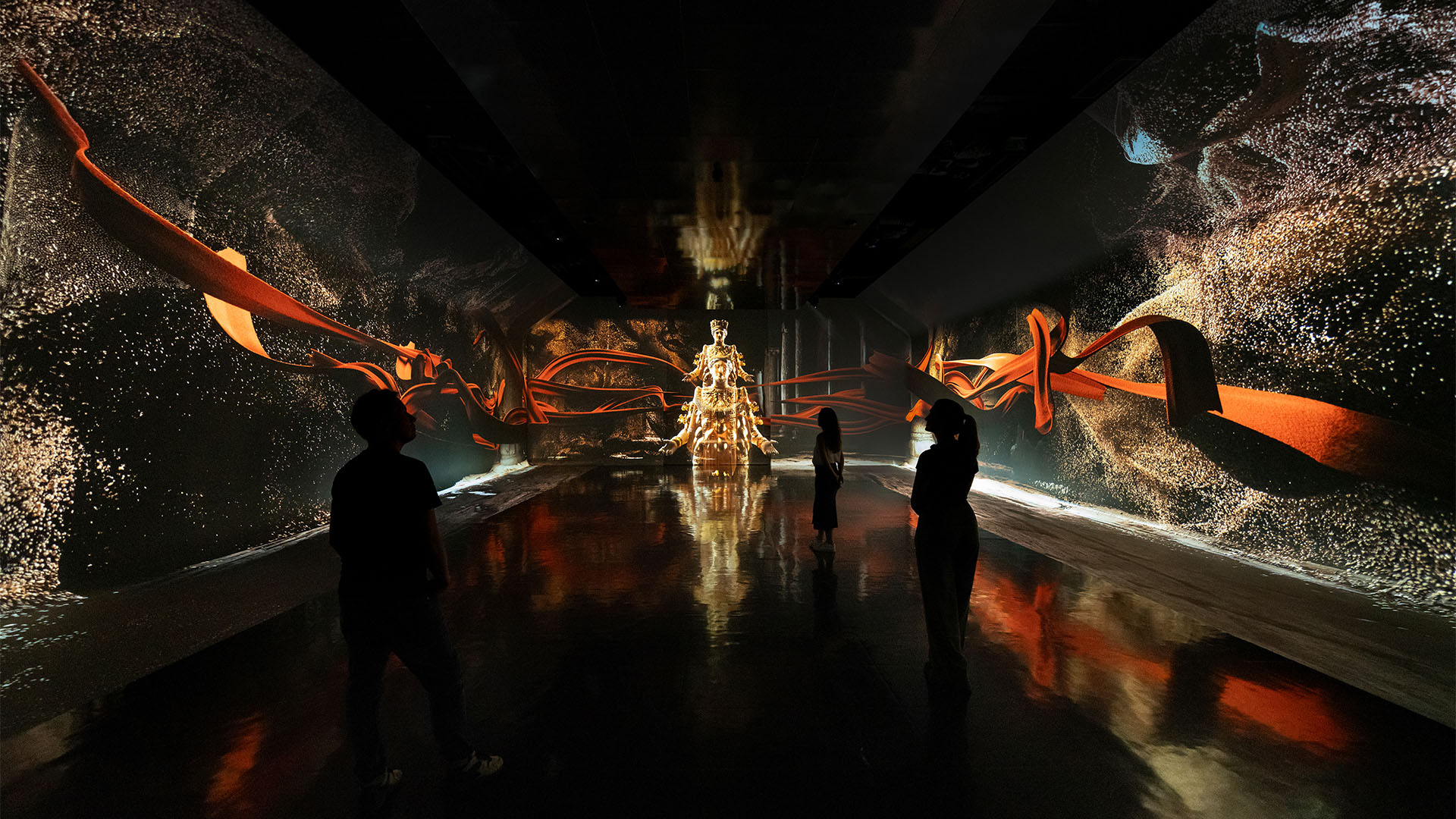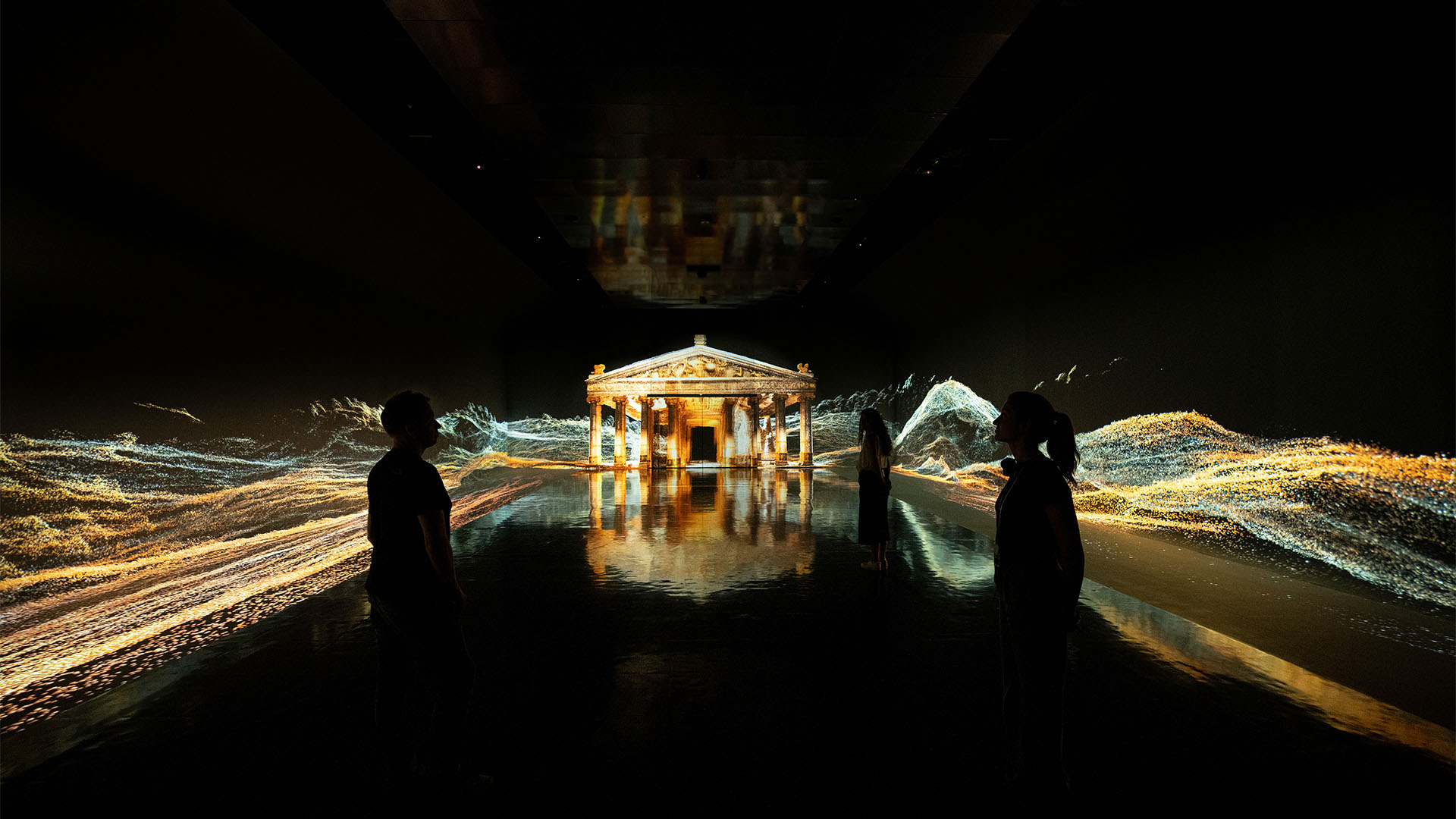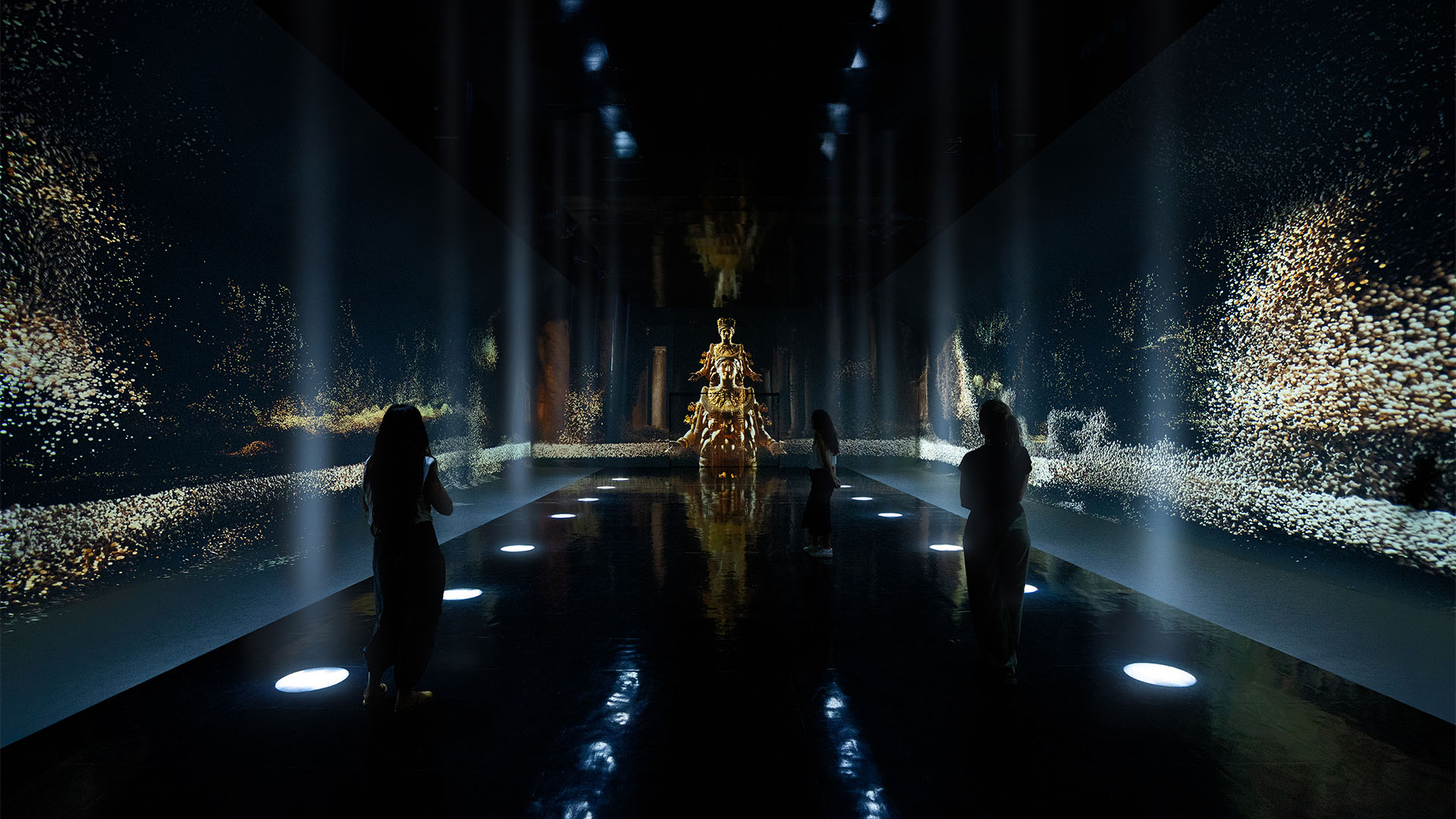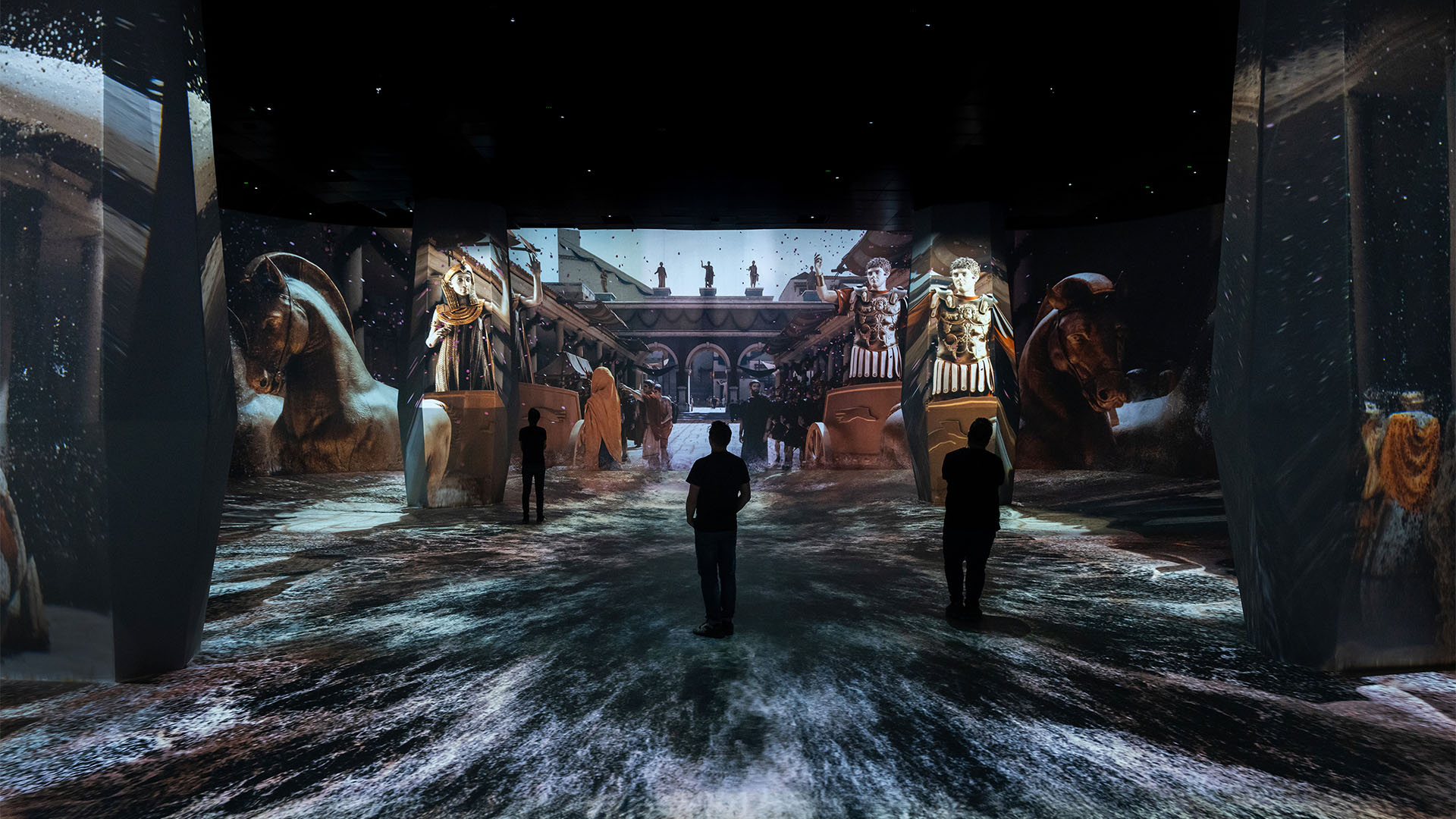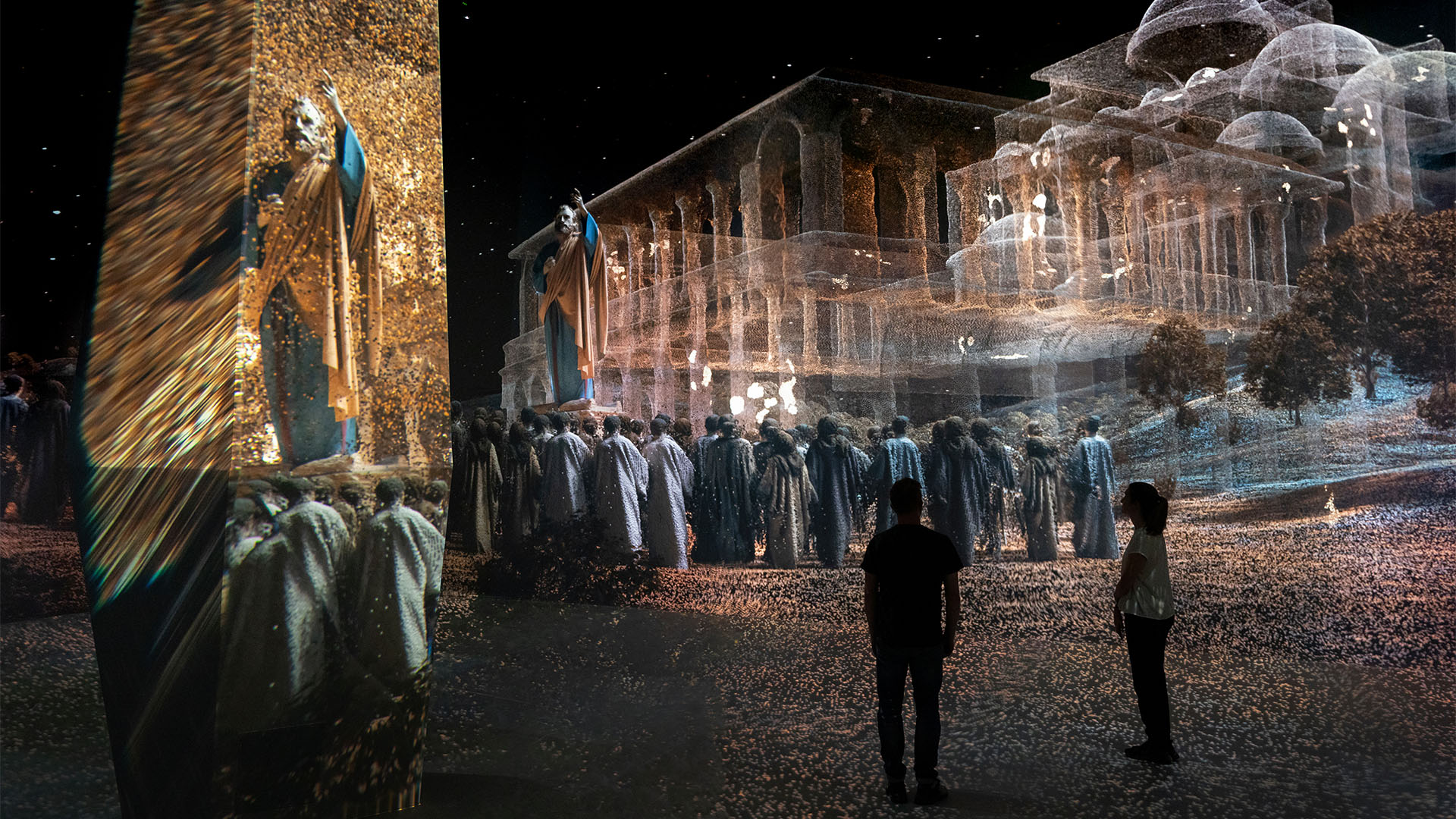Ephesus Experience Museum
Nestled within the hallowed grounds of the archaeological site, the Ephesus Experience Museum resurrects the rich past of this once-legendary city. It weaves a symphony of myth and reality, unveiling the glory of Ephesus, allowing visitors to experience life during its prime.
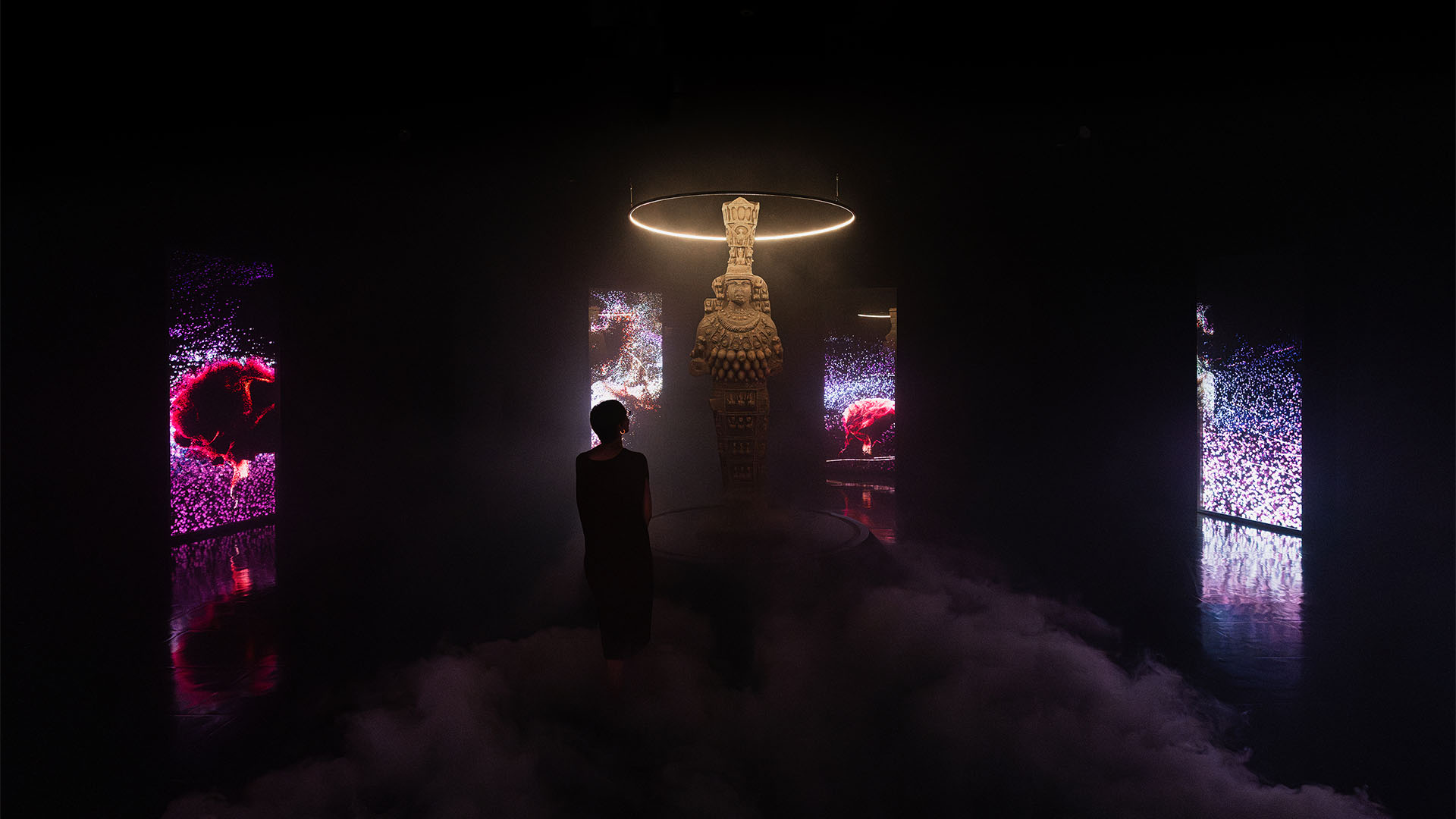
The Challenge
Creating a uniform experience across all three spaces of the Ephesus Experience Museum, regardless of where visitors stand, was a formidable challenge.
Coordinating this project remotely involved a complex web of collaboration among numerous entities, including architects, designers, technologists, and historians.
The technical synchronization of multisensory elements such as reactive lighting, spatialized sound, projection, and narration required meticulous planning and seamless execution. Each element had to be precisely calibrated to ensure that the immersive narrative enveloped visitors consistently, enhancing their emotional connection to the rich history and mythology of Ephesus. Not forgetting insuring scientific accuracy and a truthful depiction of the past, archeology, and context whether myth or reality throughout history. This intricate dance of technology and storytelling transformed the museum into a time-traveling symphony that brought the ancient city to life in breathtaking detail.
Project Vision
The project vision of the Ephesus Experience Museum is to preserve the rich heritage of Ephesus by bringing its history back to life through an immersive, multisensory experience. By captivating visitors with a dynamic narrative, the museum aims to spark a newfound appreciation for the ancient city’s legacy, drive increased interest and footfall to the archaeological site, and inspire a deeper connection to the cultural and historical significance of Ephesus. This vision seeks not only to educate but also to enchant, ensuring that the stories and splendors of Ephesus endure for future generations.
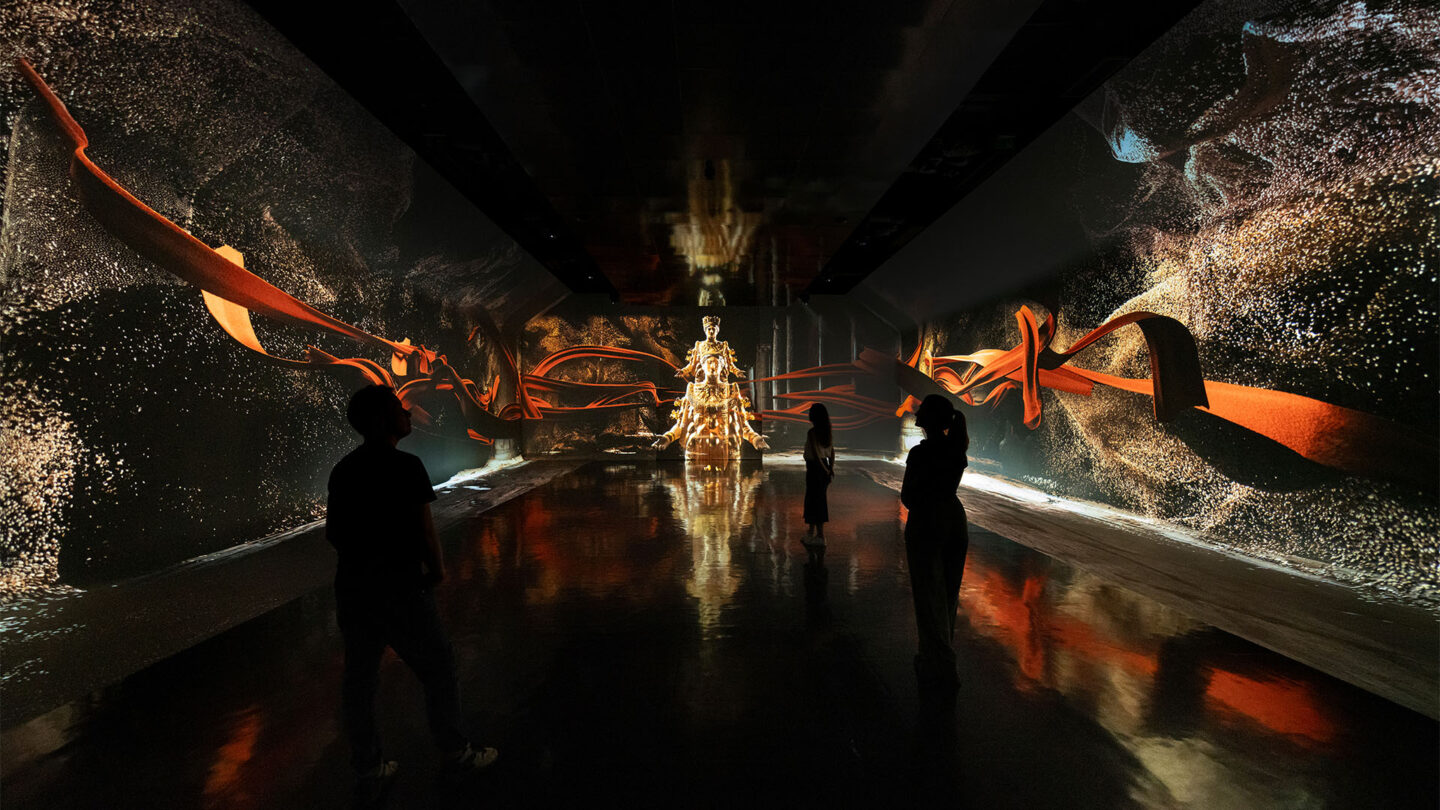
Ephesus Experience Museum – First Room – “Artemis the Goddess”
Sandra Campione
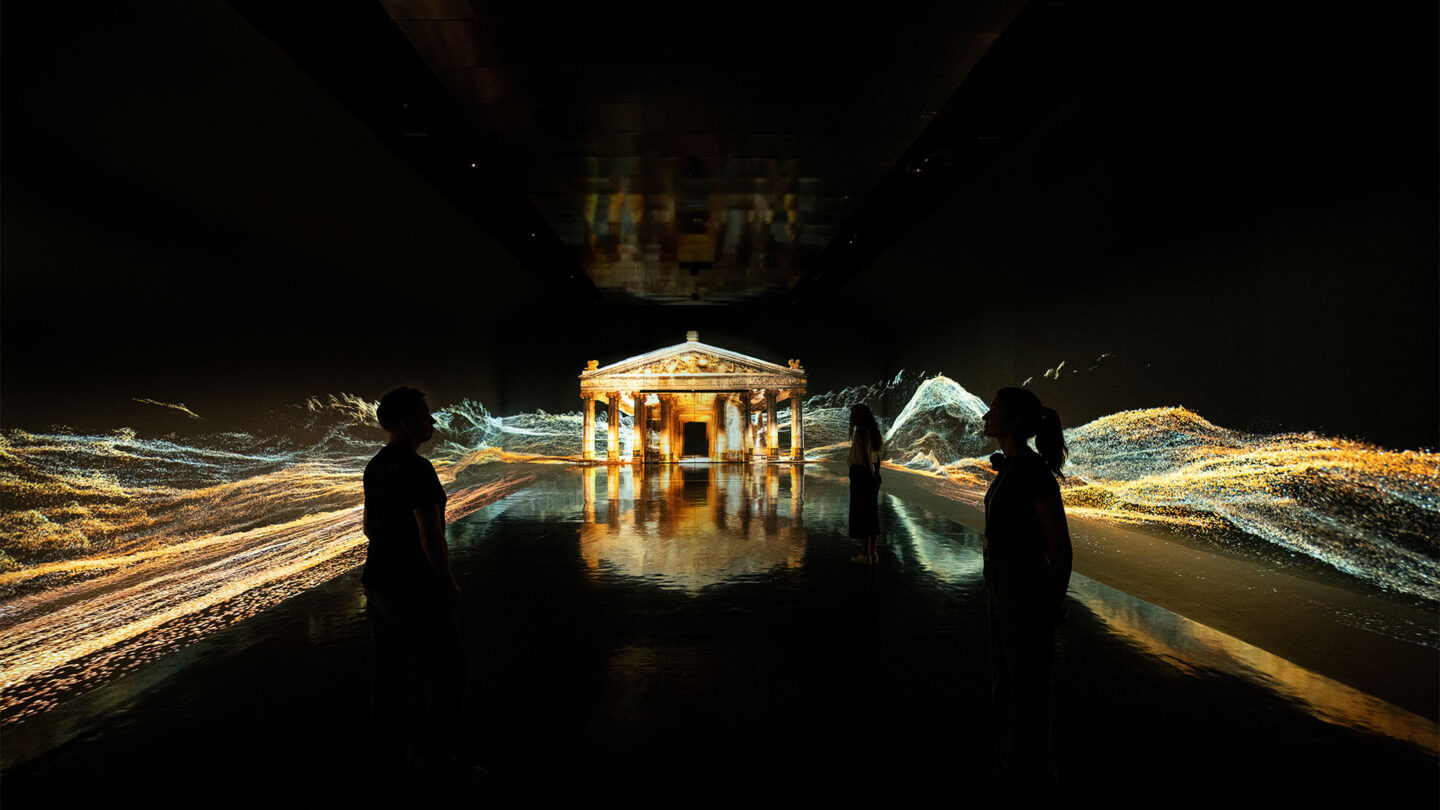
Ephesus Experience Museum – First Room – “The Artemision”
Sandra Campione
Design + Execution
In order to achieve this outcome and create an engaging visitor experience at the Ephesus Experience Museum, a comprehensive strategy was employed collaboratively.
Starting mid 2022, the process was all throughout inherently collaborative and this was integral to the success of the Ephesus Experience Museum as it offered different perspectives on the content and different tools to bring it to the audiences. Regular virtual and physical meetings facilitated open communication and ensured alignment of creative vision especially in the narrative building and scripting phases. Architects, designers, artists, technologists, historians, and archaeologists came together to shape an emotionally engaging narrative that captivates visitors from start to finish. First the narrative was built, then the spatial design around it, and finally the box carrying it (the architecture). Equally, and all throughout, VR was a very important tool, virtual models of the building kept on being updated and responding to the changes and challenges that were changing in the building on site while being constructed till the last minute.
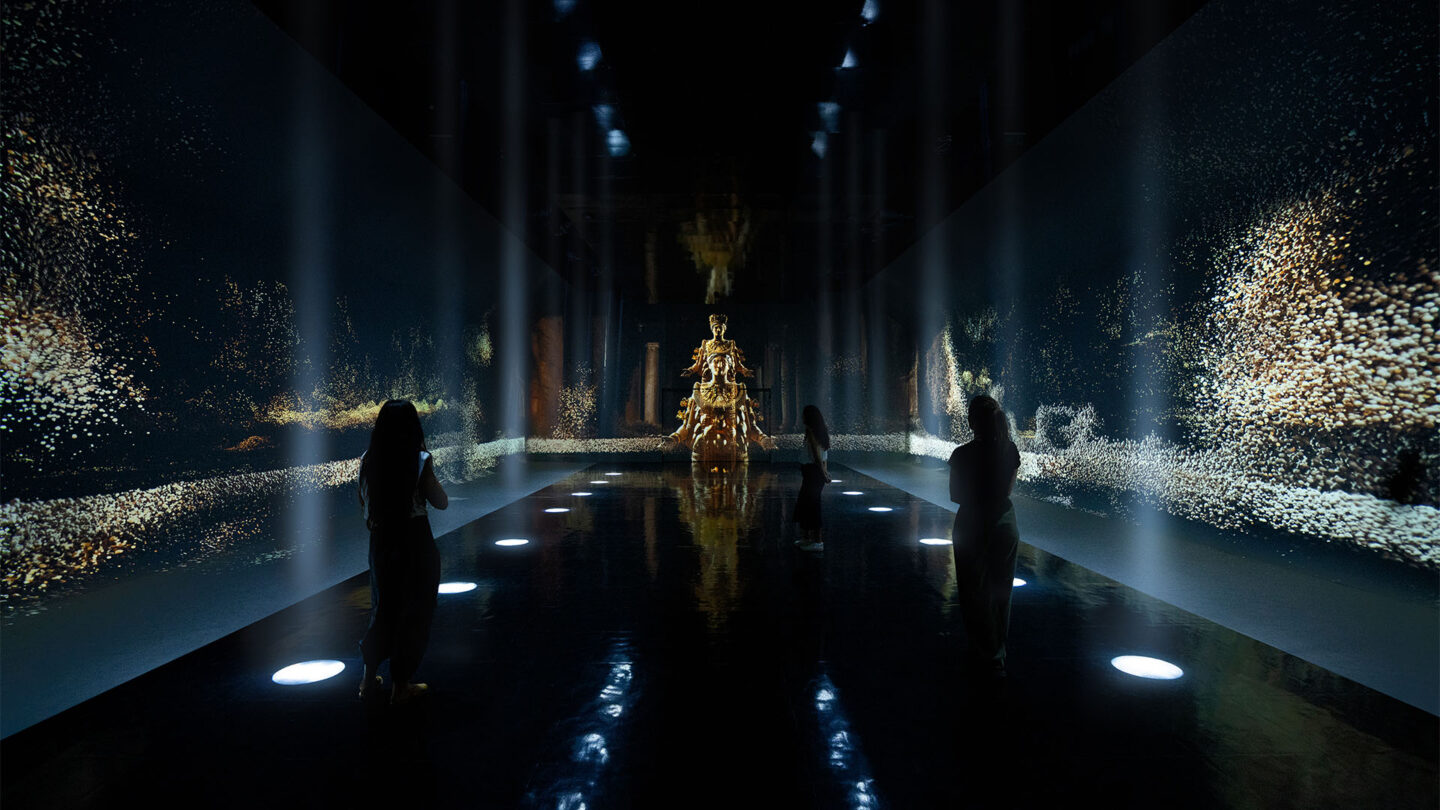
Ephesus Experience Museum – First Room – “Artemis Protectress of the City”
Sandra Campione

Ephesus Experience Museum – Second Room – “Cleopatra and Marc Anthony”
Sandra Campione
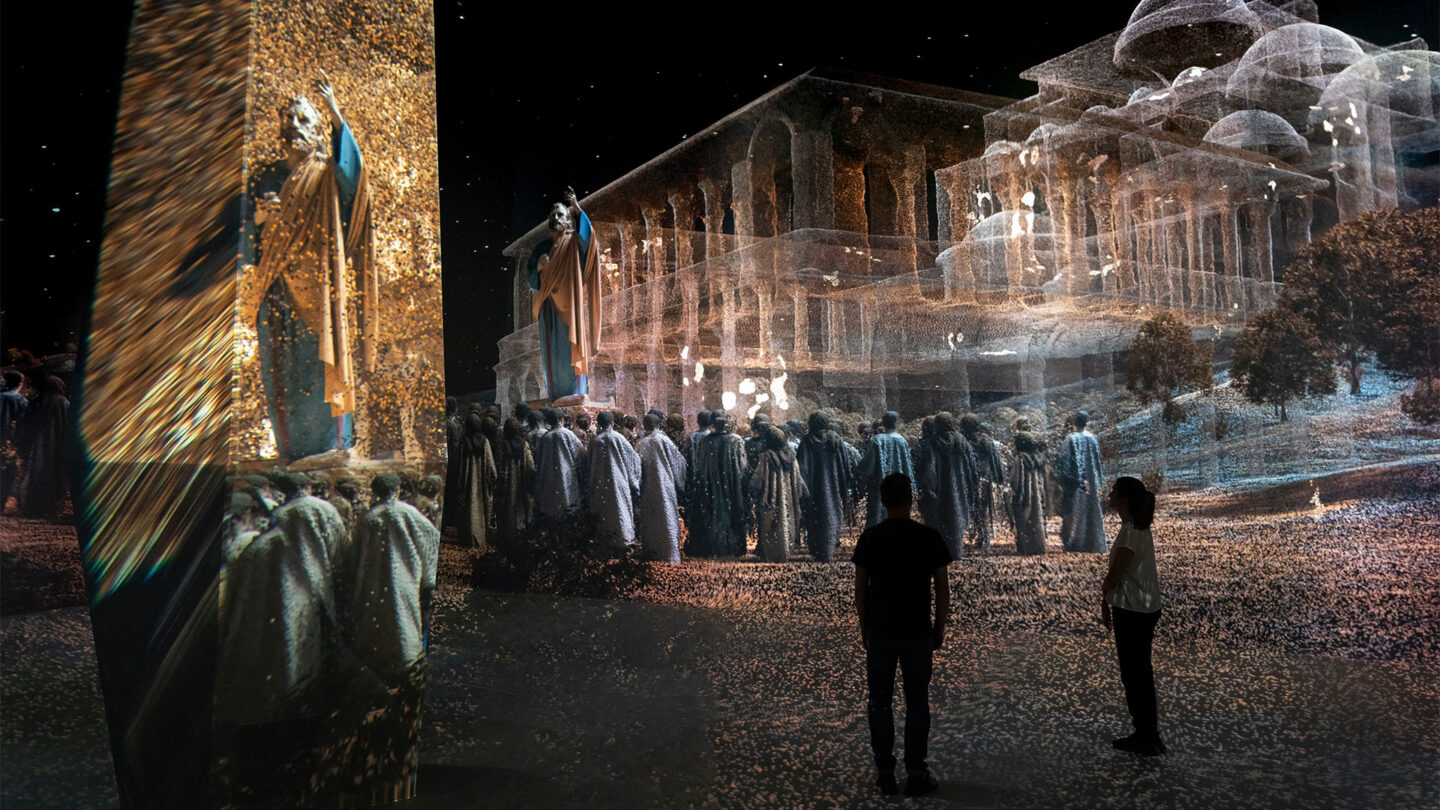
Ephesus Experience Museum – Second Room – “Saint Paul”
Sandra Campione
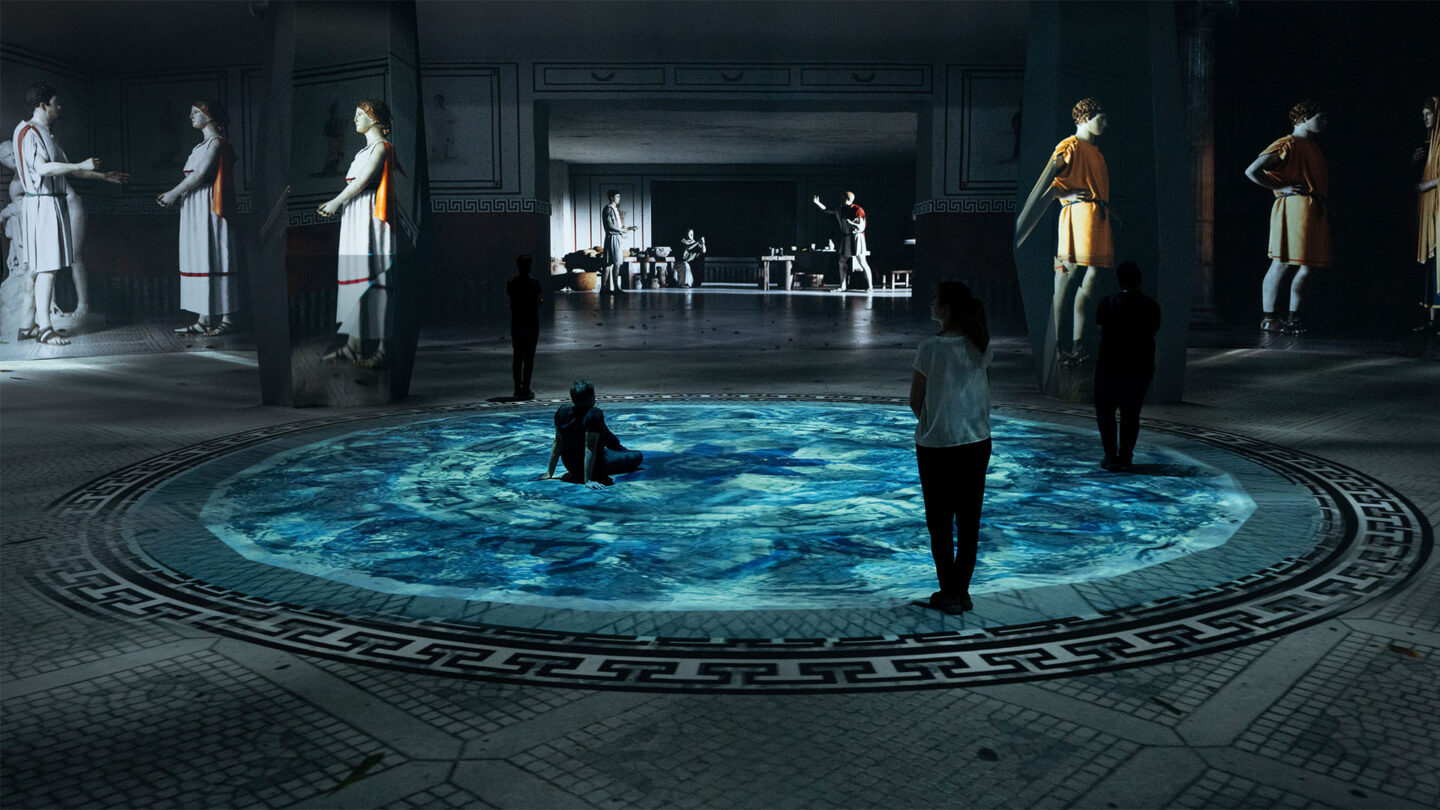
Ephesus Experience Museum – Second Room – “The Terrace Houses”
Sandra Campione
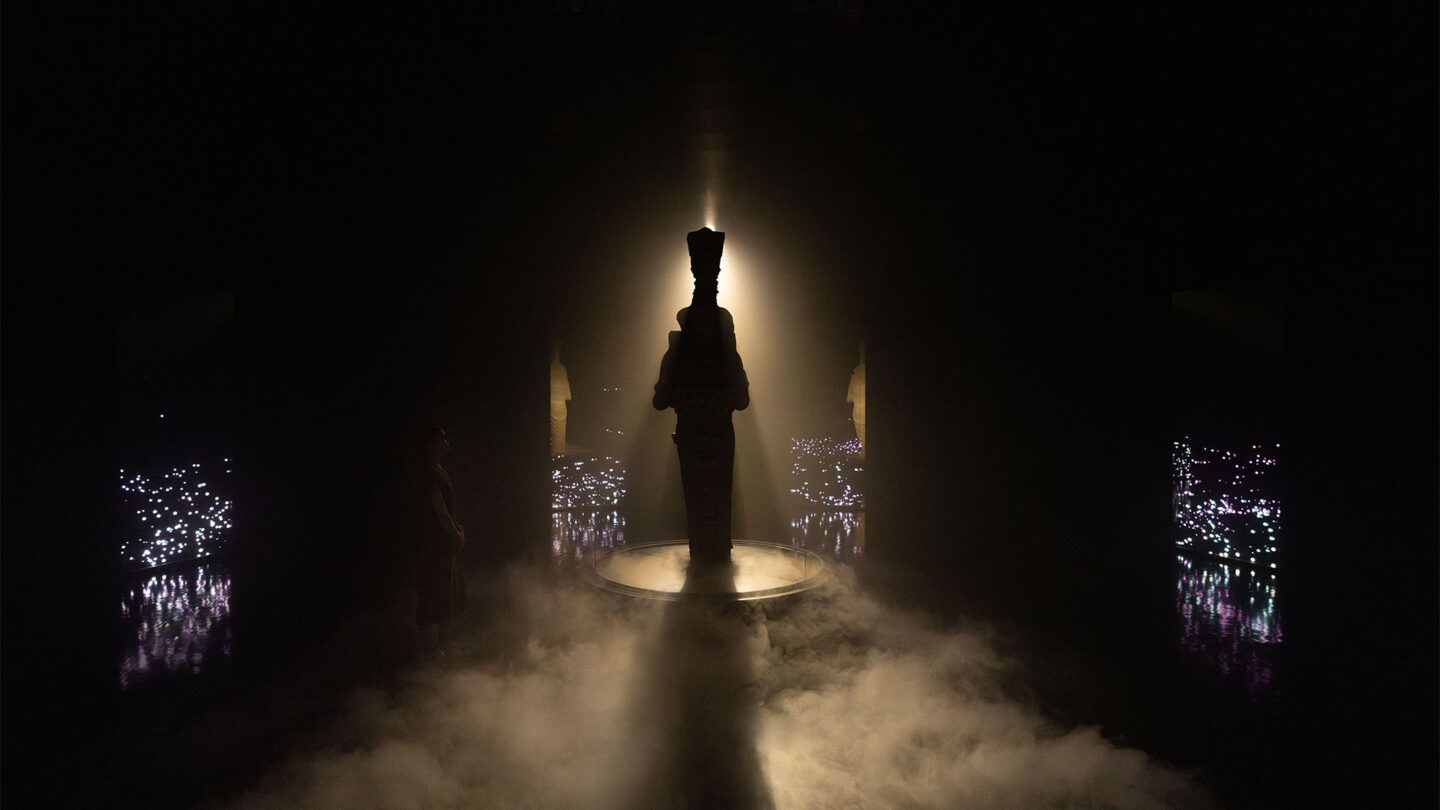
Ephesus Experience Museum – Third Room – “Artemis Statue”
Sandra Campione
Project Details
Using immersive technologies, the museum design’s “time travelling brush” powerfully reinforces the historical narrative of Ephesus by dramatically evoking the experience of being transported through time and space.
As our screens continue to become an extension of our limbs, designing spaces that are not only fresh and bold, but accessible and approachable is difficult. Utilizing multi-dimensional apparatus and multi-sensory design components this project is very robust. To design an experience that meets and at moments exceeds the existing UNESCO World Heritage Site is a feat that is quite impressive.
Design Team
Wassim Melki (project lead, managery in architecture, spatial design, experiential design, content design)
Ilgaz Kayaalp (architect)
Hossam Dorgham (architect)
Rana Rmeily (spatial design, experiential design, content design)
Sayaka Koike (graphic design)
Christine Eiche (content design)
Ersin Ersinhan (experiential design, content design, media production)
Matthew Blake (narrative design, scriptwriting)
Carolina Vallejo (media production, producer)
James Bulley (sound direction and design)
Collaborators
Dem Museums
Astel Group (physical fabrication, hardware planning)
Marshmallow Laser Feast (digital fabrication)
Belzner Holmes Studios (light design)
Sarah Readman (marshmallow laser feast)
Photo Credits
Sandra Campione, Courtesy Turkish Ministry of Culture / DEM Museums
Open Date
September 2023
